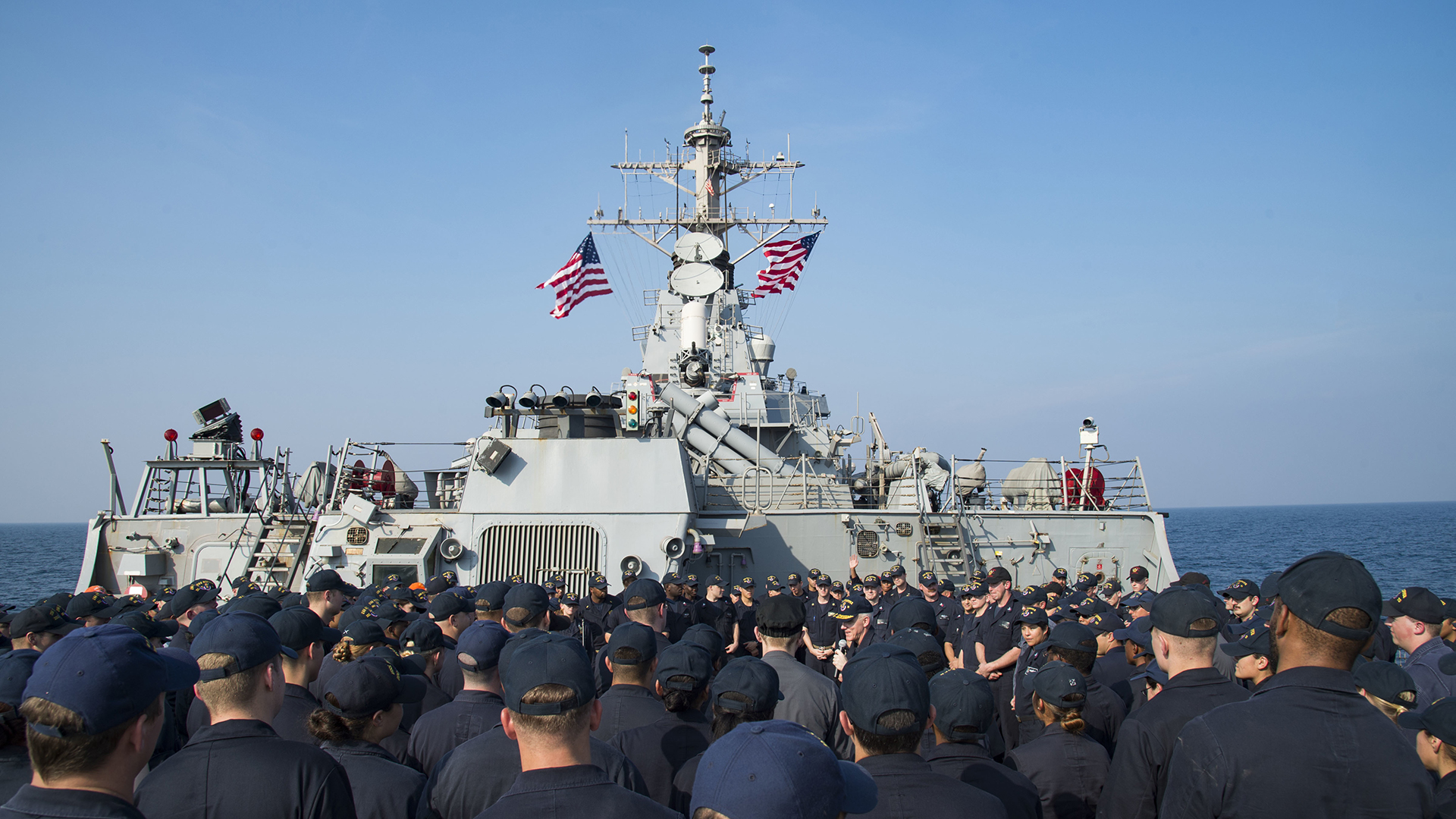

For the Navy, accountability is a guiding concept, as evidenced by the fact that the service has already relieved four commanding officers this year, including a one-star admiral.
However, this tradition of holding senior commanders to a higher standard doesn’t always work out in practice.
The most recent commanding officer to be fired is Cmdr. Kathryn J. Dawley who was officially relieved as skipper of the USS Hopper on Tuesday, “due to a loss of confidence in her leadership,” a Navy news release says.
A Navy official said that Dawley was fired due to her poor performance as the Hopper’s commanding officer, not because of any misconduct or an investigation. The official spoke on condition of anonymity in order to discuss a personnel matter.
Dawley was fired just one day after Rear Adm. Trent DeMoss was relieved of overseeing Fleet Readiness Centers amid an investigation into an accusation that he committed sexual harassment.
No information about the investigation into DeMoss’ conduct, or the circumstances surrounding the accusation were immediately available.
Two other commanding officers were fired earlier this year. The first one, Capt. Scott Moss, was relieved as the commanding officer of Navy Operational Support Center Knoxville, Tennessee, on Jan. 20.
Moss was fired after a command investigation was prompted by an inspector general complaint, reported Caitlin Kenney of Stars and Stripes. Navy officials did not provide any information about the investigation.
Then on Jan. 27, Cmdr. Frank Azzarello was relieved as the commanding officer of the destroyer USS Forrest Sherman.
At the time of Azzarello’s firing, a Navy spokesperson for the 2nd Fleet declined to comment, citing an ongoing investigation being conducted by his command and the Naval Criminal Investigative Service.
Azzarello’s attorney Timothy Parlatore said the former skipper was being punished for trying to turn a captured AK-47 into a plaque for the entire ship.
Parlatore, a Navy veteran who attended Surface Warfare Officers School with Azzarello, also represented Navy SEAL Chief Eddie Gallagher, who was found not guilty of killing a wounded ISIS fighter in 2017.
The Navy prides itself on the concept that commanding officers are accountable for everything that happens under their command. This tradition is rooted in the belief that a ship’s captain is responsible not only for his or her own shortcomings, but also for any failures by subordinates.
That is why the Navy fires skippers so often. In August 2019, the service relieved five senior leaders in that month alone.
But the Navy’s commitment to holding leaders accountable only goes so far. The service did not discipline Lt. Cmdr. Jordan J. Stutzman, then-captain of the minesweeper USS Dextrous, even though members of the crew indicated on a climate survey that he had turned the ship into a “miserable prison,” in the words of one sailor.
Nor did the Navy punish Adm. Philip Davidson, the head of U.S Indo-Pacific Command, for approving the aircraft carrier USS Theodore Roosevelt’s visit to Vietnam in March 2020. Investigators later determined the port call was the source of the deadly novel coronavirus (COVID-19) outbreak that raged aboard the ship.
However, none of that leniency was applied to the USS Theodore Roosevelt’s former commanding officer, Capt. Brett Crozier, who was effectively fired twice after he sent an urgent message warning commanders that his sailors would die unless they were moved into single-rooms ashore as quickly as possible.
The controversy led many to believe that Crozier had become a scapegoat for the shortcomings of senior Navy leaders — another long-standing Navy tradition.
Featured image: The destroyer USS Hopper in the U.S. 5th Fleet area of operations. (U.S. Navy photo by Petty Officer 3rd Class Nathan T. Beard.)
